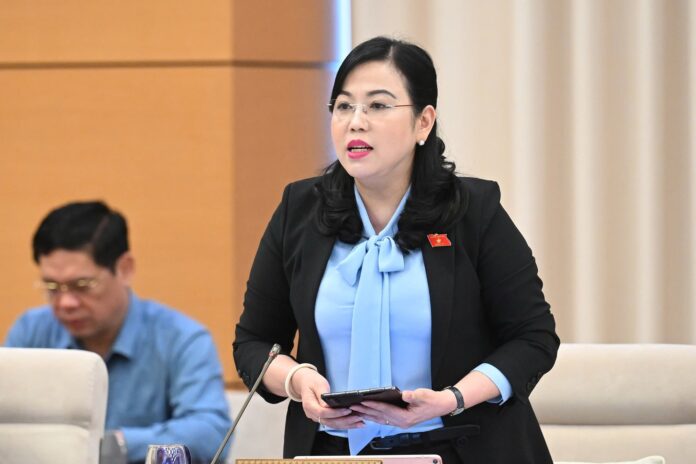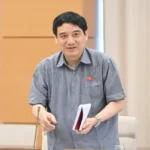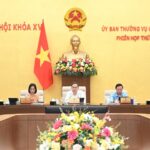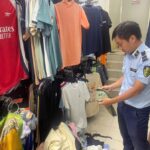On June 9th, the 46th session of the National Assembly’s Standing Committee continued with discussions on the Law on Teachers, with a focus on private tutoring and extra-curricular learning.
How can we define coercive behavior?
Nguyen Thanh Hai, head of the Committee for Deputy Affairs, appreciated the Ministry of Education’s receptiveness to feedback, noting their consideration of diverse opinions, including conflicting views, and their detailed explanations for choosing specific options.
However, she specifically focused on the prohibition of coercing students to engage in extra-curricular learning in any form. This provision remains unchanged from the previous draft. The explanation states that the Ministry of Education and Training has issued regulations prohibiting teachers from providing extra-curricular lessons to their own students.
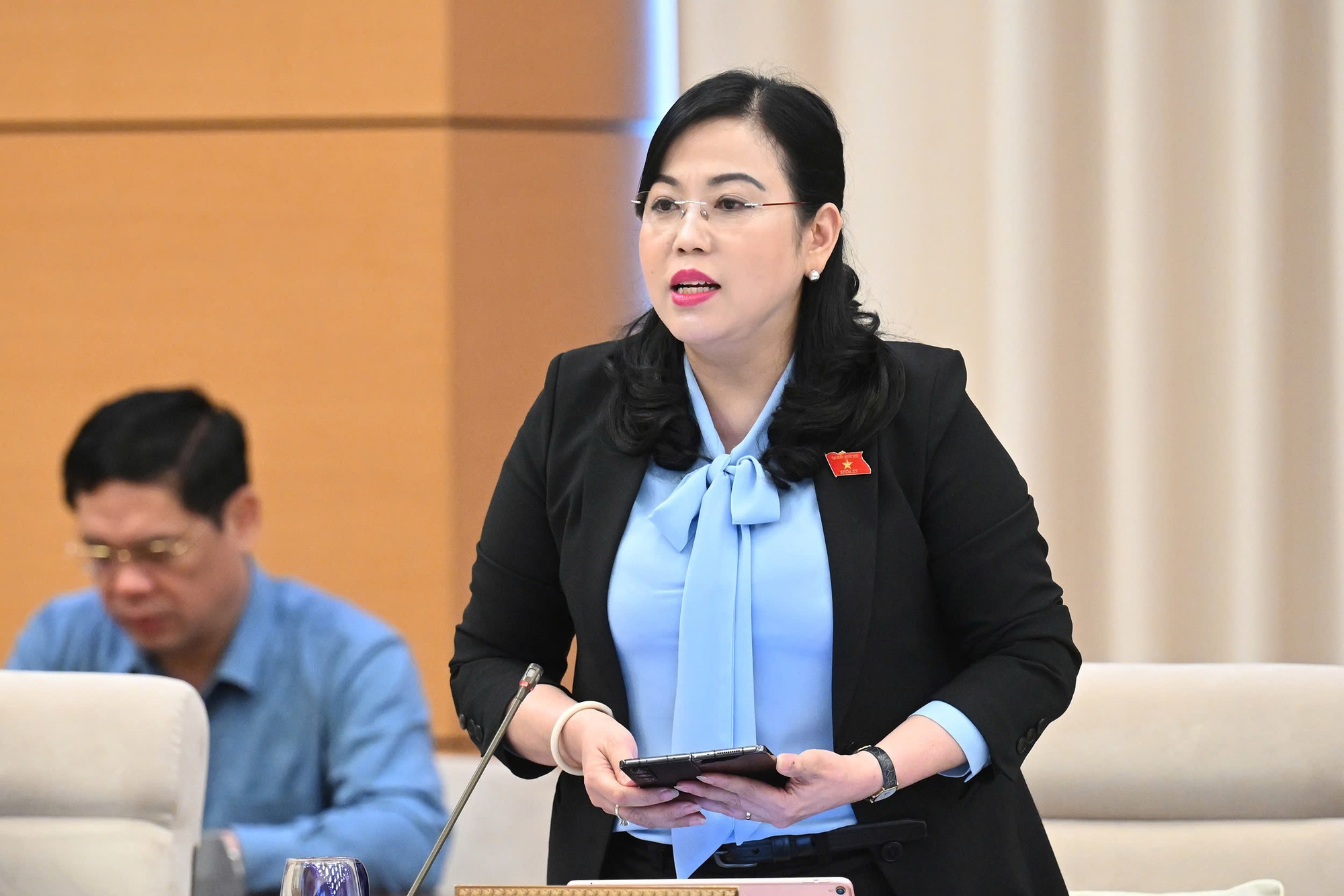
Nguyen Thanh Hai, Head of the Committee for Deputy Affairs (Photo: Media Congress)
According to Ms. Hai, this is a step forward, clearly addressing the nature of the issue: private tutoring and extra-curricular learning are legitimate needs, but profiteering is not tolerated. However, she emphasized that to enforce this prohibition, it is essential to first define what constitutes “private tutoring and extra-curricular learning,” which is absent from the draft’s glossary.
Ms. Hai suggested that private tutoring could be understood as teaching activities conducted by teachers or specialists outside regular school hours and the school curriculum. This could take various forms, such as home tutoring, teaching at centers, or online instruction (including Zoom and Google Meet). Home tutoring could involve students visiting the teacher’s home or vice versa, with tutors traveling to students’ residences.
In reality, since the regulations on private tutoring and extra-curricular learning were issued (such as Circular 29), numerous issues have arisen. For instance, many teachers organize online classes via Zoom or Google Meet for their own students and charge fees, which is challenging to monitor and manage.
Sharing concerns about the term “coercion” in all its forms, Ms. Hai questioned how coercive behavior could be identified. She pointed out that while there might be voluntary registration on paper, there could be implicit coercion, forcing students to write such applications.
Another issue causing concern is Article 14. The recent situation of regional imbalances in teacher staffing has led to numerous challenges, negatively impacting the quality of teaching and learning.
The draft law proposes granting the education sector autonomy in recruiting teachers to ensure sufficient numbers, a suitable structure, and high-quality teaching staff. This places a significant responsibility on the Minister, as the recruitment of teachers at different educational levels will follow regulations set by the Minister of Education and Training.
Therefore, Ms. Hai recommended implementing an independent monitoring and supervision mechanism to prevent corruption in recruitment. She suggested exploring policies for teacher transfers and coordination, similar to rotation models, along with synchronizing recruitment authority, approval authority for staffing, and budgeting to ensure effectiveness and feasibility during implementation.
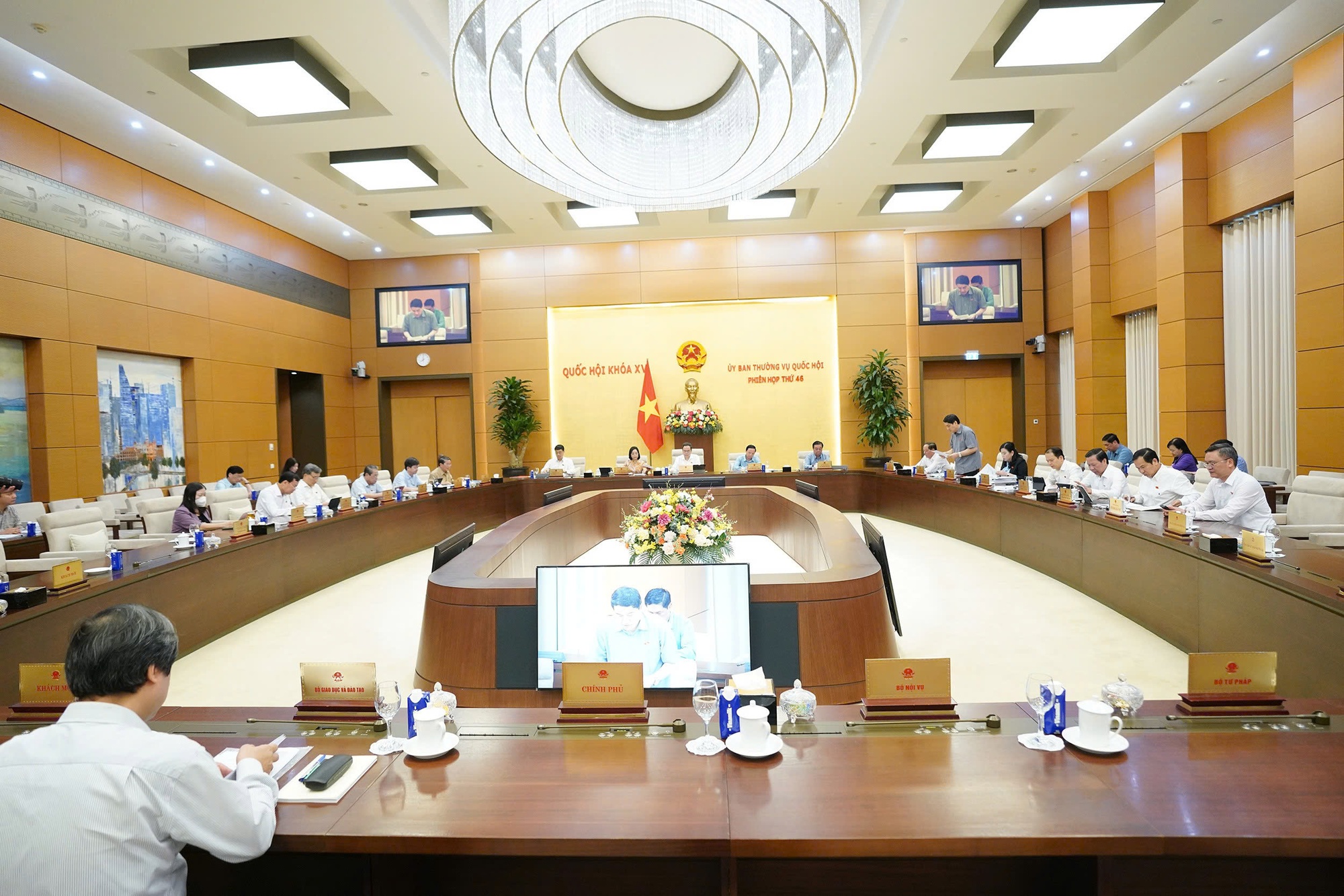
Scene from the morning session on June 9 (Photo: Media Congress)
Regarding private tutoring and extra-curricular learning, Vice Chairman of the National Assembly Tran Quang Phuong agreed that using the term “not coercing” was appropriate.
He elaborated that coercion implies forcing families and students to write applications, such as “come to my class, not someone else’s.”
“Once it’s called coercion, there are many manifestations, but the key is how to manage and distinguish between ‘coercion’ and ‘non-coercion.’ Not coercing extra-curricular learning also respects the right to learn of students and their parents,” Mr. Phuong said.
According to him, for the same lecture in class, some students may grasp 70% of the knowledge, while others may only understand 50% or 40%. As a result, some students may need to study independently, attend extra classes, or seek private tutoring.
However, he expressed concern about prohibiting teachers from providing extra lessons to their own students. He suggested re-evaluating this design.
“If we impose this ban, students might say, ‘No, I want my teacher to teach me more. I don’t understand when someone else teaches.’ It’s unreasonable to prohibit them from registering for extra lessons with the teacher who teaches them in class. Now, I’m in charge of Class 7A, and it’s unreasonable that I can’t offer extra lessons to my own students,” Mr. Phuong argued, suggesting that this restriction should be reconsidered.
Failure to Fulfill Public Duty
Elaborating on the opinions related to private tutoring and extra-curricular learning, Minister of Education and Training Nguyen Kim Son stated that private tutoring and extra-curricular learning are well-defined concepts in Circular 29, applicable to a specific group of individuals.
“These teaching and learning activities take place outside the school’s regular teaching plan but still aim to convey the contents of the prescribed education program,” the Minister explained.
According to him, this means that the curriculum has been established, and the school has implemented the teaching plan as per the regulations. However, if teaching activities continue outside the specified time frame and target a specific group of students, covering the same curriculum, it is considered private tutoring and extra-curricular learning as per Circular 29.
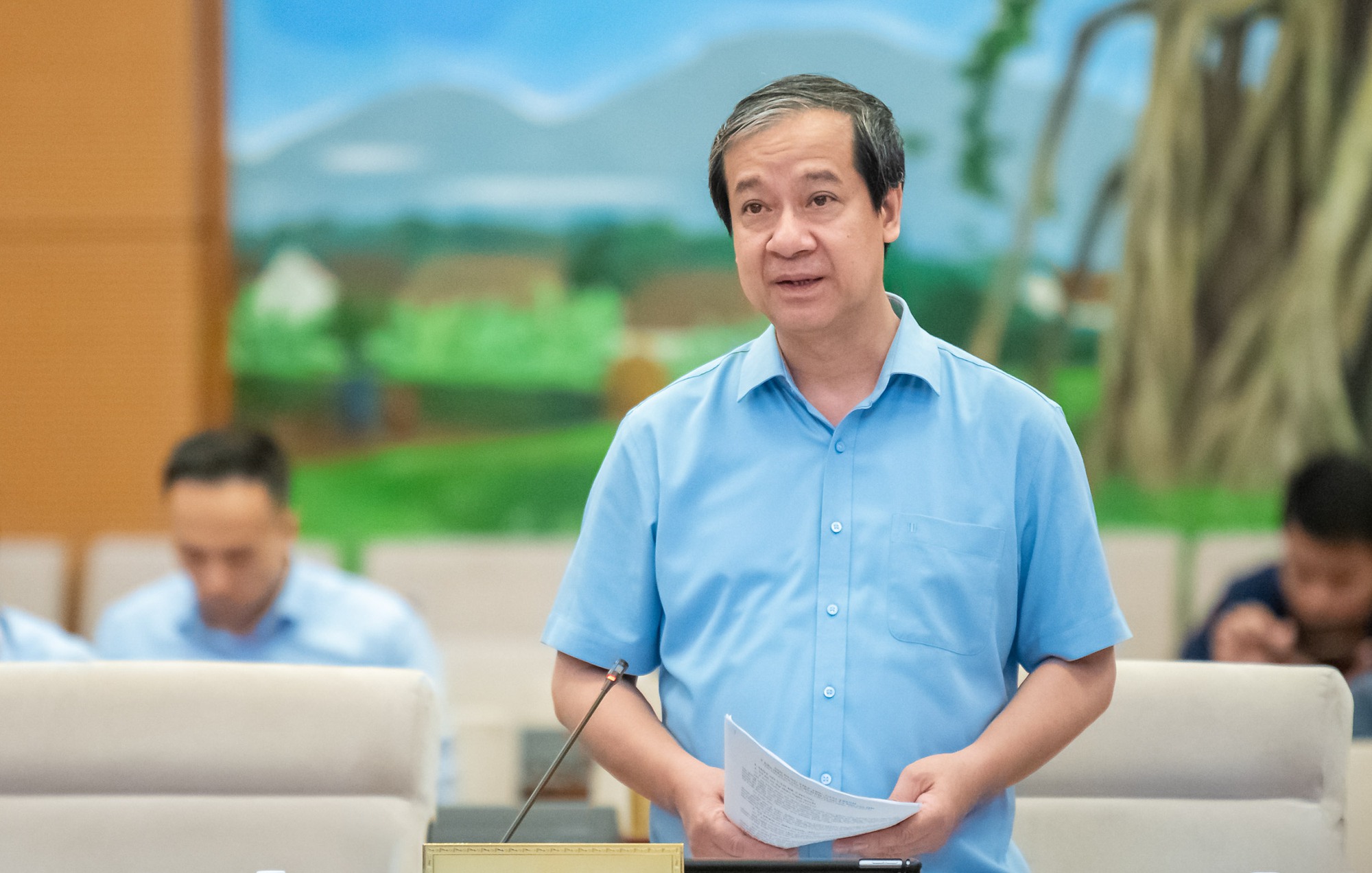
Minister of Education and Training Nguyen Kim Son (Photo: Media Congress)
Regarding the provisions on what teachers should not do, the Minister believed that these primarily reflected the ethical standards expected of teachers rather than specialized regulations.
“As for specialized regulations, there are other sectoral documents that specify how coercion occurs and who is involved,” the Minister informed.
Addressing the question of why teachers are prohibited from providing extra lessons to their own students, Minister Nguyen Kim Son explained that, as part of their public duty, teachers are responsible for imparting knowledge to their students during regular class hours.
“If a teacher fails to fulfill this duty during regular hours, it indicates a failure to fulfill their public duty. Therefore, allowing them to teach the same content outside of class for personal gain can lead to distortions and prevent them from fulfilling their public duty,” the Minister said.
The Minister clarified that, outside of regular class hours, teachers are permitted to teach three specific groups: underperforming students, gifted students, and students preparing for graduation exams. This can take place within the school premises, and these regulations are clearly defined.
“This also underscores the seriousness of public duty, ensuring that teachers fulfill their responsibilities,” he added.
No Ban on Private Tutoring and Extra-Curricular Learning
Previously, in a report on key issues in explaining, receiving, and editing the draft Law on Teachers, regarding prohibited acts, Mr. Nguyen Dac Vinh, Chairman of the Culture and Education Committee, stated that some opinions suggested adding regulations to prohibit teachers from providing extra lessons illegally and teaching students they are directly teaching.
According to Mr. Vinh, the draft law does not prohibit private tutoring and extra-curricular learning. Instead, it aims to prevent teachers from coercing students to participate in extra-curricular learning in any form to limit and overcome the rampant situation of private tutoring and extra-curricular learning. The Ministry of Education and Training has issued regulations on private tutoring and extra-curricular learning, which include a provision prohibiting teachers from providing extra lessons to their own students.
“A Vision for Educators: Minister Nguyen Kim Son Advocates for a Twofold to Threefold Increase in Teachers’ Salaries, Emphasizing the Need for Careful Calculations”
“With a workforce of 1.2 million educators, even a slight increase in expenditure requires careful consideration. While we aim high, we must also be mindful of budgetary constraints and feasibility. There needs to be a well-thought-out roadmap,” emphasized Minister of Education and Training, Nguyen Kim Son.
No Ban on Private Tutoring
The proposed Teacher’s Law does not prohibit private tutoring; it emphasizes the freedom of choice for students. It is crafted to ensure that students are not compelled to engage in additional tuition beyond their regular academic pursuits. This law upholds the value of optional supplementary learning, empowering students to make their own decisions regarding their educational journey.


























